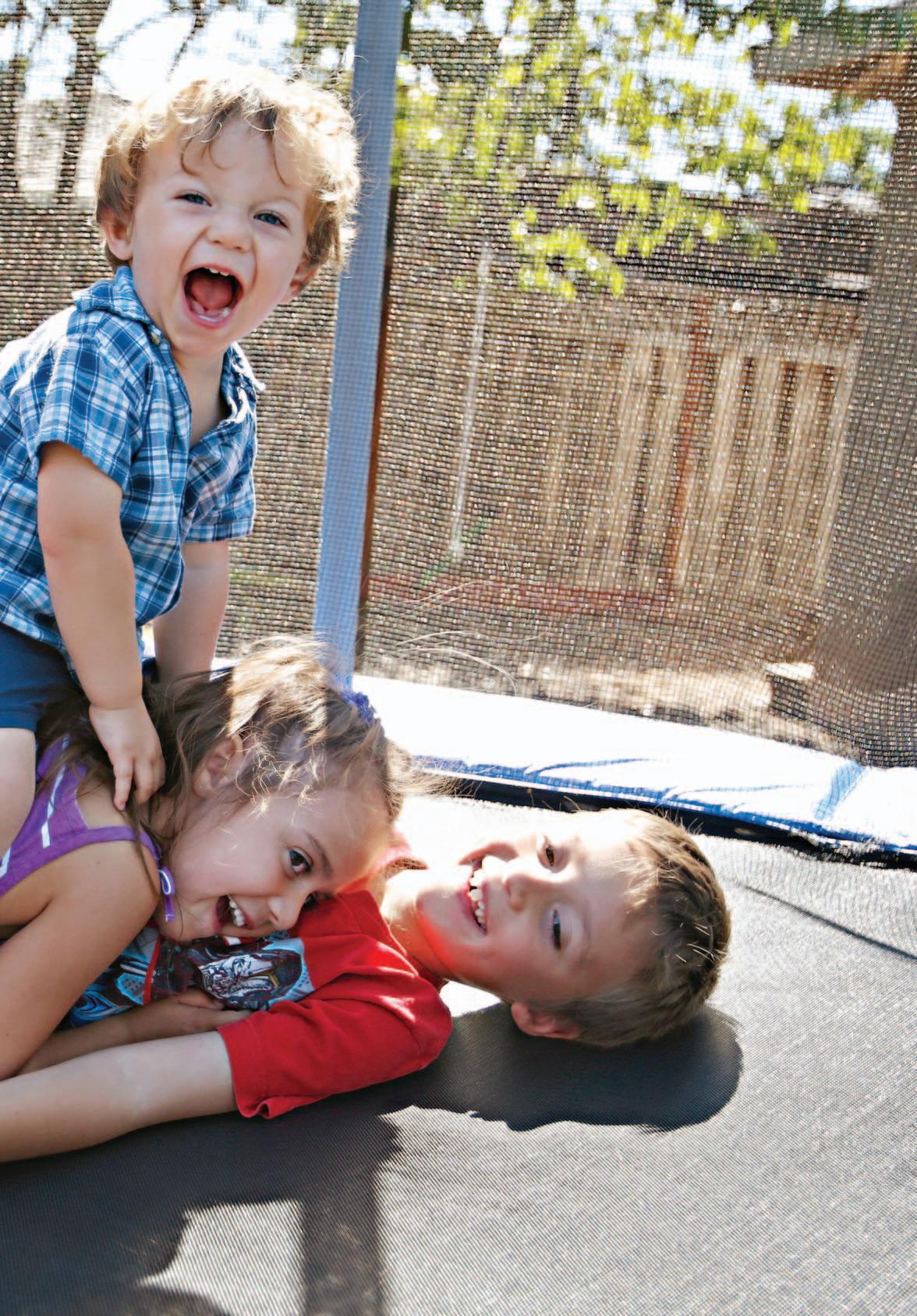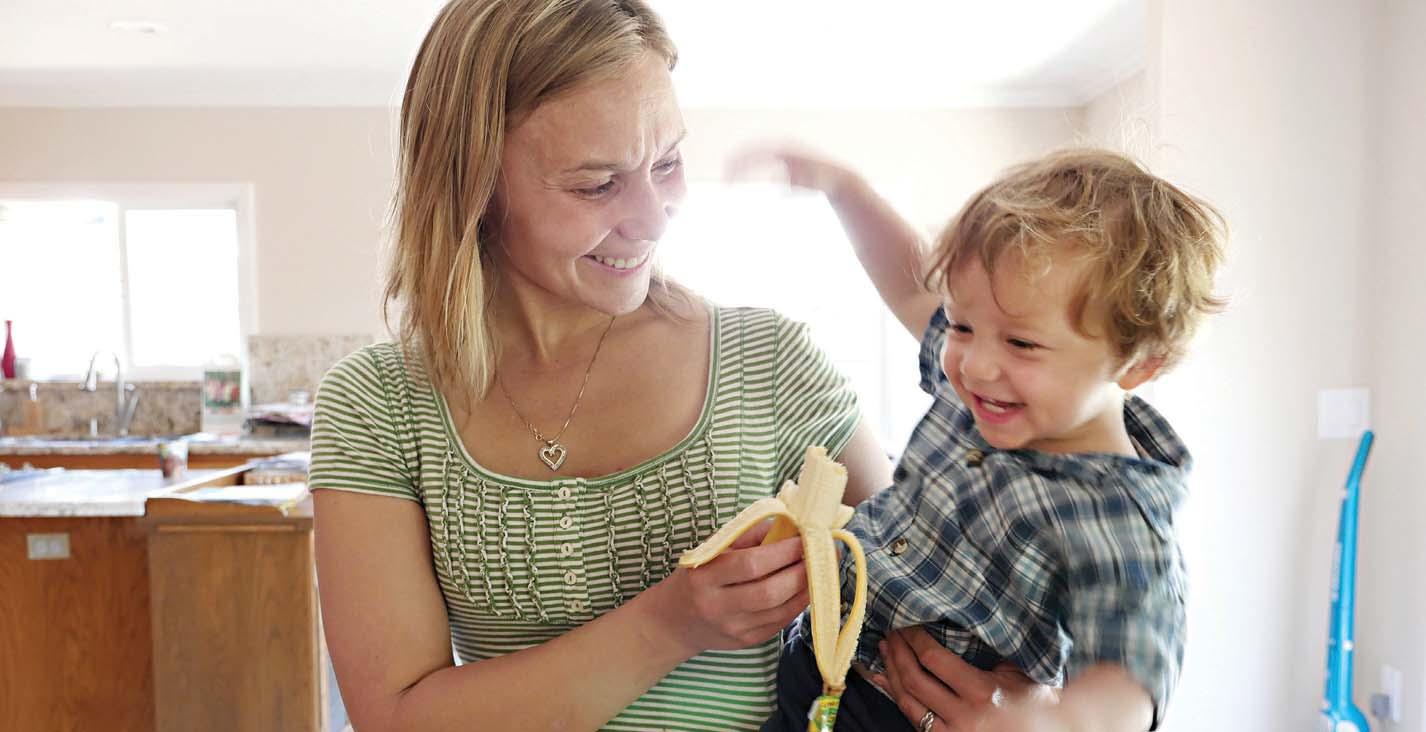
3 minute read
THE WHY CHROMOSOME
Toddlers love to passionately, tirelessly and, yes, sometimes annoyingly question things. But why?
STORY BY BRUCE NEWMAN PHOTOGRAPHS BY JIM GENSHEIMER
Robert F Kennedy and his wife, Ethel, had 11 children, so when Bobby brought crowds to their feet during the 1968 presidential campaign with the line that some “see things as they are and say, why,” he knew what he was talking about
At the very moment kids are learning to say the darnedest things, curiosity connects to conversation, and the question begins to fly “Why?”
This interrogatory typically commences around the time rear-facing car seats get turned around and toddlers discover they have a captive audience in the front seat. Girls and boys seem equally adept at lobbing these high-pitched grenades, as both are born with the Why Chromosome.

It is a single word, just one syllable, and yet from the mouths of babes it often is so elongated that each letter seems to stand on its own. When posed by, say, U.S. Supreme Court Justice Ruth Bader Ginsburg, “why” sets up a specific query: “Why did the plaintiff waive his rights?” But from a 3-year-old with an active imagination and all sorts of time, “why” can feel like a finger repeatedly poking you in your chest.
DRIVING OUR DAUGHTER, Nicole, to day care, I proffer a gentle warning.
“I’m going to roll up your window now, honey”
“Why?”
“I don’t want it to get too windy on you.”
“Whyyy?”
“Well, I don’t want you to catch cold”
“Whyyyyyyy?”
“Hahahaha. Well, precious, that’s because every time you get the sniffles, Daddy ends up with his sinuses in traction.”
“Why?”
And so on. Until the cows come home Not that you should ever bring up the possibility of cows coming to your home in front of a child who is hot to toddle.
“One ‘why’ definitely can lead to another ‘why,’ ” says Laura Lennox, of Saratoga, who is just finishing up the wonder years with 5-yearold Ella and about to embark on them again with Malcolm, now almost 2. “They just keep going until you really don’t know what you’re answering anymore. ‘Why is the sky blue? Why is it not another color?’ And then you have to go Google it. Or you just say, ‘I don’t know. Ask your dad.’ ”
It turns out, toddlers don’t always use language the same

“They just keep going until you really don’t know what you’re answering anymore,” says Laura Lennox, with son Malcolm, above.
“ ‘Why is the sky blue? Why is it not another color?’ And then you have to go Google it. Or you just say, ‘I don’t know.
Ask your dad’ ” way adults do, and they might not actually be seeking the level of detail implicit in their “why”s’ guise. “They learn quickly that it’s a good conversation starter,” says Dr. Alan Greene, a Menlo Park pediatrician and founder of DrGreene.com. “It gets people talking, and it keeps them talking if they keep asking the same question again and again. Parents sometimes get tricked into trying to explain the cause of something which the kid doesn’t understand, so they’re not really satisfied”
ON RARE OCCASIONS, A NOTE
of exasperation from the adult in this exchange arises if the question is posed one too many times.
Comedian Louis C.K., the father of two daughters in life and on his TV show, has rued the “why” Q&A in a stand-up routine that has received more than 15 million hits on YouTube “You can’t answer a kid’s question,” he dadsplains “They don’t accept any answer. A kid never goes, ‘Oh, thanks. I get it.’ ” Patiently answering a child’s questions when there is nothing else going on is one thing. Dealing with a barrage of whys from the back seat can be a bigger challenge “It’s just part of being a parent, especially if it comes at the wrong time,” says Dr Stefani Hines, medical director of the Center for Human Development at Beaumont Children’s Hospital in Michigan. “There are times when you’re not in that frame of mind to talk about it. But they’re not looking for a scientific dissertation about why the cow gives milk. They’re looking to bring us into their world, and vice versa.”
Greene agrees: Keep your answers simple. “Just tell a story about whatever it is,” he says. “If they ask why it’s raining, you don’t have to explain how rain happens But if you talk about how rainy days are fun, and rainy days bring puddles, and some days are sunny, and sometimes it snows, it’s so much easier, and the kids love it.”
After dropping off his 5-yearold son, Hudson, at Action Day Primary Plus day care in Santa Clara, Tony Rondonuwu, an engineer, said he has pursued a different approach “He asks about everything!” Rondonuwu says. “‘Why is this? Why is that?’ And then we explain, and he asks again. Sometimes the explanation becomes very deep and technical because that’s the only way to explain. So I give him very scientific answers, and he seems to remember”
What many parents fail to realize is that this exchange between parent and child will be reversed in about 15 years.
“Daddy, I want to get a tattoo.”
“Why?”
“I really like them”
“Why?”
“My boyfriend wants me to.” No “why”Noway










